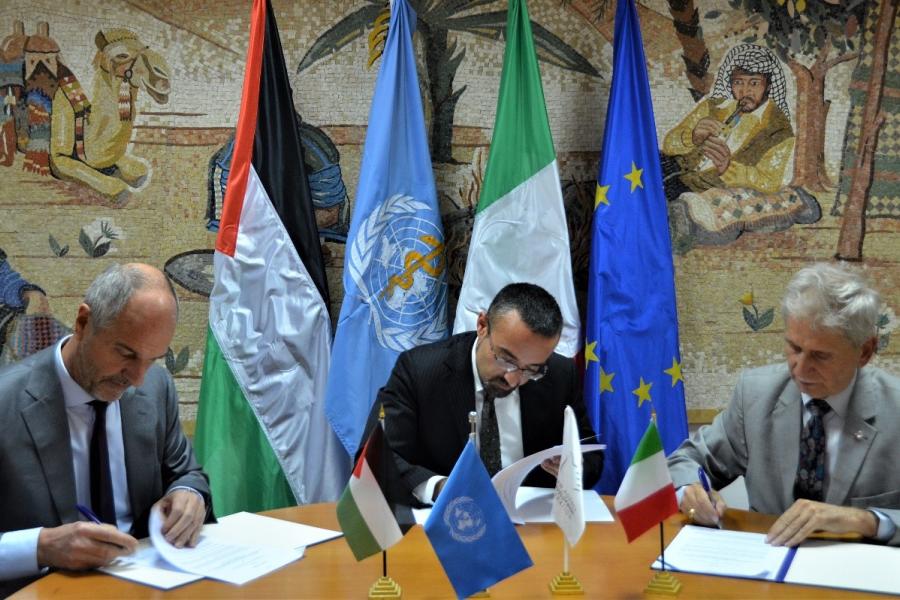Reduce avoidable morbidity and mortality in oPT by strengthening the Palestinian emergency health care system
16 December 2021
Consul General of Italy in Jerusalem H.E. Mr. Giuseppe Fedele, Mr. Guglielmo Giordano Head of the Italian Agency for Development Cooperation (AICS) and Dr. Richard Peeperkorn Representative of the World Health Organization (WHO) in the occupied Palestinian territory (oPt) signed today an agreement to launch the health project: Reduce avoidable morbidity and mortality in oPT by strengthening the emergency health care system.

With a total budget of 5 million EUR provided by the Italian Cooperation the project will contribute to the strengthening of the of the Palestinian health system in terms of reducing avoidable disease, death and disability, and support the social stability during any sudden onset disaster, emergencies and outbreaks across oPt.
The project will operate over a period of three years with interventions at the three levels of care including pre-hospital, hospital and tertiary care. WHO will work closely with the Ministry of Health, the Palestinian Red Crescent and a number of local NGOs throughout the lifetime of the project and expect to target 230,000 beneficiaries across oPt.
“The Palestinian health sector has shown incredible resilience in the face of the unprecedented challenges posed by the pandemic. Italy intends to continue doing its part as a lead-Donor in this sector, by promoting increasing access to modern, high-quality health services for all the Palestinian people“ said Consul General of Italy Giuseppe Fedele.
Thanking AICS for funding this project, Dr Richard Peeperkorn, the WHO Representative in oPt, said: “I would like to extend our sincere thanks to AICS for funding this essential emergency program. It will build on the first phase of WHO trauma and emergency program and institutionalize key aspects of its concepts and activities to strengthen the health sector resilience and capacity”.
Some of the results expected is to enhance the capacity of prehospital services care during time of emergencies, improve health care services of NCD patients during emergencies, upgrade the essential emergency and surgical care delivered at major hospitals and improve effectivity of medical equipment use.


